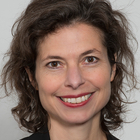The Current Column
German Sustainability Award 2020
Advancing the 2030 Agenda through municipal partnerships with the global South
Dick, Eva / Paul Marschall / Christopher WingensThe Current Column (2020)
German Development Institute / Deutsches Institut für Entwicklungspolitik (DIE), The Current Column of 7 December 2020
A growing number of municipalities are contributing directly to the implementation of the UN’s 2030 Agenda. Leading the way on climate action, supporting fair trade and facilitating societal participation by migrants, they promote multilateral cooperation and initiatives. The “Global Partnerships – Municipal Partnerships” award is presented as part of the German Sustainability Day and recognises outstanding cooperation between German cities, towns, districts and local authorities on the one hand and municipalities in the global South on the other. Three partnerships were singled out for the accolade at this year’s awards ceremony on 4 December. The two first places went to the partnership between the town of Landau in Rhineland-Palatinate and the Ruhango district of Rwanda in East Africa, and that between the Karlsruhe district of Baden-Württemberg and the city of Brusque in southern Brazil. The partnership between the city of Leipzig in Saxony and the Ethiopian capital Addis Ababa took third place. These partnerships show three key trends.
First, municipal initiatives in Germany are becoming more diverse. Partnerships with the global South are now also being run by smaller cities and municipalities, not only large ones. The range of cooperation issues is also growing. The partnership established between Landau and Ruhango 36 years ago, for instance, supports education and health care work in the Rwandan partner district. The last two years have seen it expanded to include a plan with the Landau municipal waste disposal companies for improving settlement and water management. Established in 2012, the climate partnership between Karlsruhe and Brusque focuses on environmental and economic cooperation and school exchanges. An important reason for the diverse spectrum of partnership topics is the significant expansion in recent years of support for the development initiatives of municipalities, especially through the Service Agency Communities in One World (SKEW). The German Federal Ministry for Economic Cooperation and Development (BMZ) increased its funding for this area from EUR 5 million in 2013 to almost EUR 31 million in 2020.
Second, the partnerships benefit not only the municipalities in the global South, but also the German municipalities and their citizens. This is even true where living standards vary greatly. In Landau, for instance, the second hand market supported by the local Ruhango-Kigoma friends group serves as the main revenue source for the projects in Rwanda. At the same time, it allows low-income German households to purchase used goods at low cost and contributes to their upcycling. Because both municipalities have been affected by flooding in recent years, the administrative dialogue centres on discussions of ways to mitigate the impact of torrential rainfall. The ‘Inclusive Municipality’ project forms part of the partnership between Leipzig and Addis Ababa and enables representatives of both cities to undergo training in integrative urban development for the disabled.
Third, the award-winning partnerships send out an important political message in terms of their continuity in the face of nationalist go-it-alones and political crises. The partnership between Landau and the Ruhango district, for instance, has been ongoing since 1984, surviving the 1994 Rwandan genocide in the process. Its involvement in the construction of a reconciliation centre in 2008 helped to raise awareness of the issues and contributed to societal peace-building. Operating under the political radar of a national government that rejects the notion of a climate-change catastrophe, the partnership between Karlsruhe and Brusque works to promote climate- and environmentally-friendly development.
Nonetheless, the example of Brusque also shows that municipalities often have limited scope for action due to national political and institutional frameworks. Incidentally, the same applies to the development activities of cities, towns, districts and local authorities in Germany, where development cooperation responsibility rests with the national government and the federal states. For municipalities, development work is a voluntary area of activity and is frequently under-financed as a result.
Despite difficult overall conditions in some cases, the award-winning partnerships illustrate once more the key role played by towns, cities and municipalities in promoting sustainable global development. The cooperation relationships facilitate the mobilisation and sharing of knowledge, expertise, technologies and financial resources (SDG 17.16), with lessons being learned by both sides in many cases. The awards ceremony of the German Sustainability Day makes a key contribution to increasing the (short-term) visibility of the work being done by German municipalities to implement the 2030 Agenda. In order to further exploit local potential for the global transformation to sustainability in the medium and long term, it is essential to step up provision of political, financial and advisory support.
This article has been written as part of the ongoing study “Municipal development co-operation in Germany” commissioned by SKEW and conducted by the German Development Institute / Deutsches Institut für Entwicklungspolitik (DIE). DIE is working closely with the German Institute for Development Evaluation (DEval), which is currently evaluating the municipal development cooperation support provided by SKEW.



